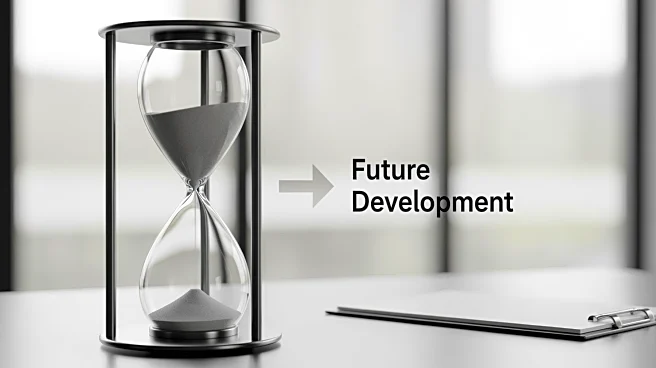What's Happening?
HR leaders are being encouraged to transform performance reviews from a retrospective documentation process to a forward-looking development tool. Jackie Dube, Chief People Officer at The Predictive Index, advocates for using technology to enhance performance management
by providing insights that guide employee growth and reduce manual workload for managers. Despite efforts to emphasize productivity, many employees remain dissatisfied with current performance management systems, which often fail to address early signs of employee disengagement. Research by WTW suggests that optimizing performance management could increase productivity by at least 10%, yet only 39% of organizations feel their current processes meet employee expectations. The integration of AI in performance management is seen as a potential solution, with 66% of surveyed workers believing AI could make workplaces fairer and more efficient.
Why It's Important?
The shift in performance review strategies is significant for U.S. businesses as it addresses the growing trust issues between employees and management. By focusing on future development rather than past achievements, organizations can foster a more supportive and growth-oriented environment. This approach could lead to increased employee satisfaction, reduced turnover, and improved productivity. The use of AI in performance management also highlights the evolving role of technology in HR practices, offering a way to streamline processes and enhance decision-making. Companies that successfully implement these changes may gain a competitive edge by creating a more engaged and motivated workforce.
What's Next?
Organizations are likely to continue exploring the integration of AI and technology in performance management, with a focus on transparency and data governance. HR leaders may pilot AI tools with select managers to reduce administrative burdens and enhance feedback processes. As these technologies become more prevalent, companies will need to establish clear policies on data usage and ensure compliance with privacy standards. The ultimate goal is to transition from annual reviews to continuous, real-time feedback, fostering ongoing dialogue and alignment between employees and managers.
Beyond the Headlines
The move towards continuous feedback and AI integration in performance management raises ethical considerations regarding data privacy and the potential for bias in AI algorithms. Companies must ensure that AI tools are auditable and explainable, maintaining employee trust and confidence in the system. Additionally, the shift may require cultural changes within organizations, as managers adapt to new technologies and feedback methods. Long-term, this evolution in performance management could redefine workplace dynamics, emphasizing collaboration and personal growth over traditional hierarchical structures.
















